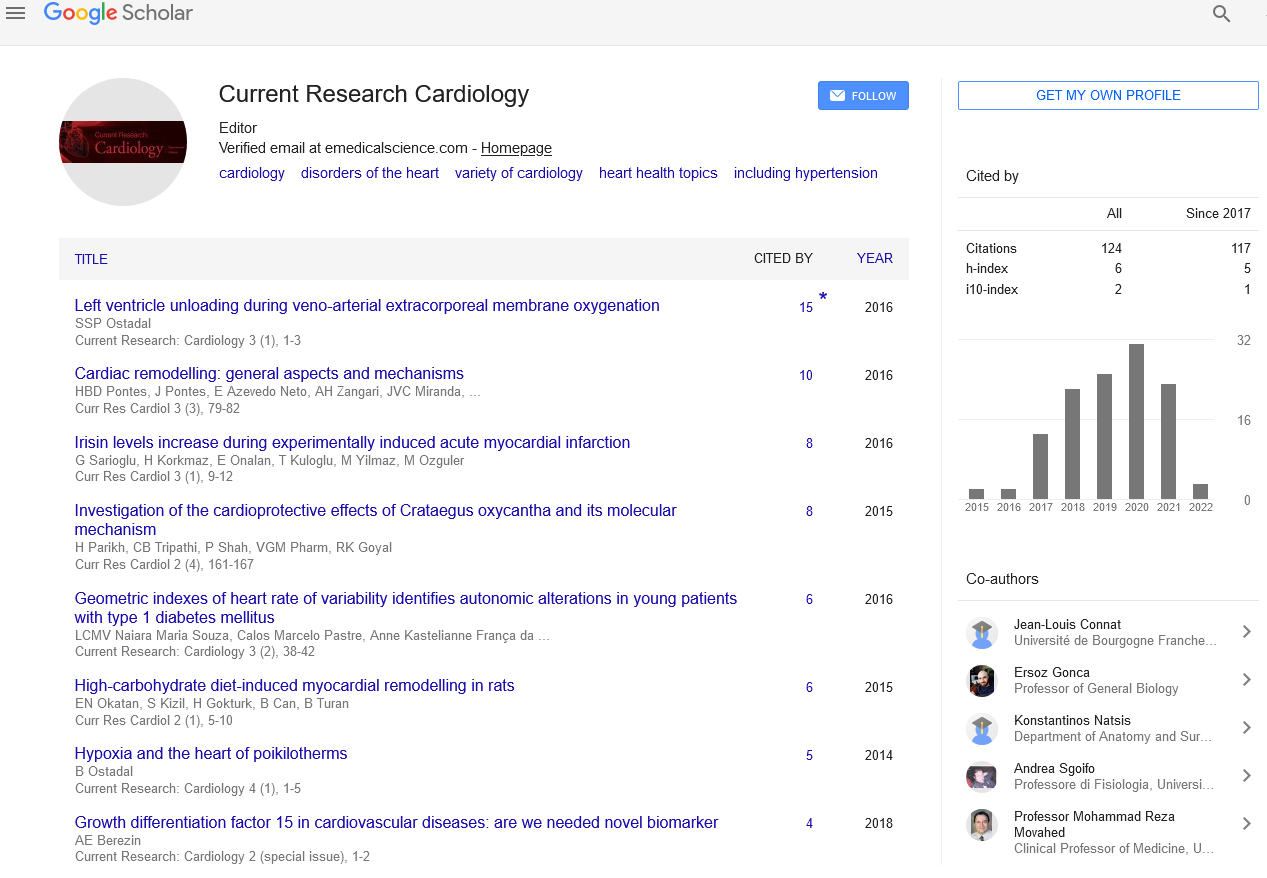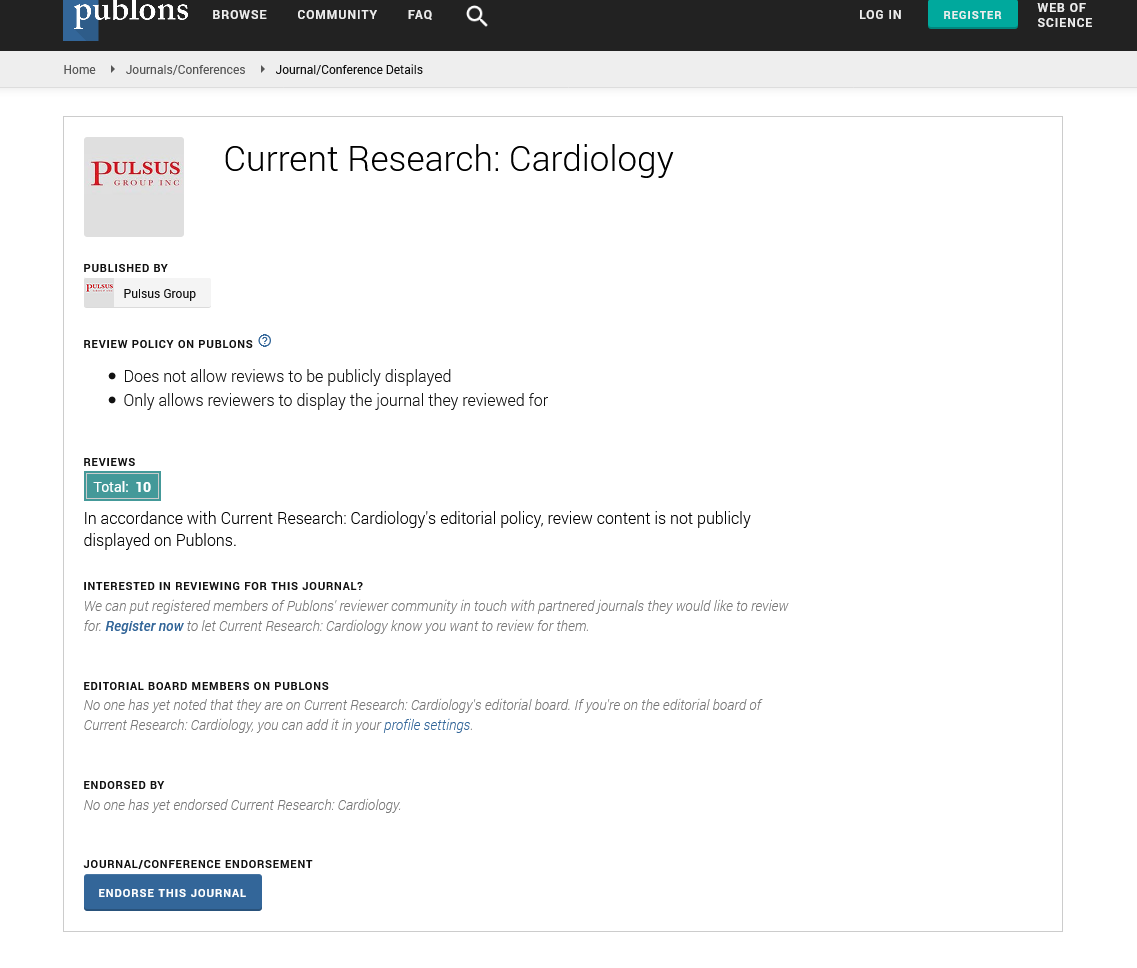
Sign up for email alert when new content gets added: Sign up
Abstract
Acetylsalicylic acid use in primary prevention in Canada: Insight from the Primary Care Audit of Global Risk Management (PARADIGM) study
Author(s): Milan Gupta*, Paul E Szmitko, Mahesh Kajil, Ilia Ostrovski, Michelle Tsigoulis Dip, Subodh Verma and Narendra SinghBackground: Acetylsalicylic acid (ASA) is of proven benefit in reducing cardiovascular (CV) events in both acute and chronic CV conditions. However, the role of ASA for the primary prevention of CV disease remains controversial, compounded by the risk of major hemorrhage with ASA therapy. Despite this, ASA remains frequently used in primary prevention. Methods: The PARADIGM study is an observational registry of 3015 healthy, middle-age Canadians, free of CV disease or diabetes, who underwent CV risk stratification. The present analysis assessed the use of ASA in this primary prevention cohort. Results: A total of 406 subjects (13.5%) were prescribed ASA by their primary care physician. Those prescribed ASA, compared with those who were not, were more likely to be older, of male sex, white Caucasian, past/current smokers, hypertensive and to have a family history of premature CV disease. Blood pressure, renal function, high-sensitivity C-reactive protein, waist circumference and body mass index were all discriminators of ASA use. The mean modified Framingham risk score was significantly higher for those prescribed ASA compared with those who were not. Importantly, only 44% of those prescribed ASA were at high risk according to Framingham risk score. Conclusions: The contemporary use of ASA in primary prevention remains high. Several clinical and laboratory factors influence the decision to prescribe ASA. However, the majority of ASA use was noted in individuals at low and intermediate risk (versus those at high risk).
Full-Text | PDF





